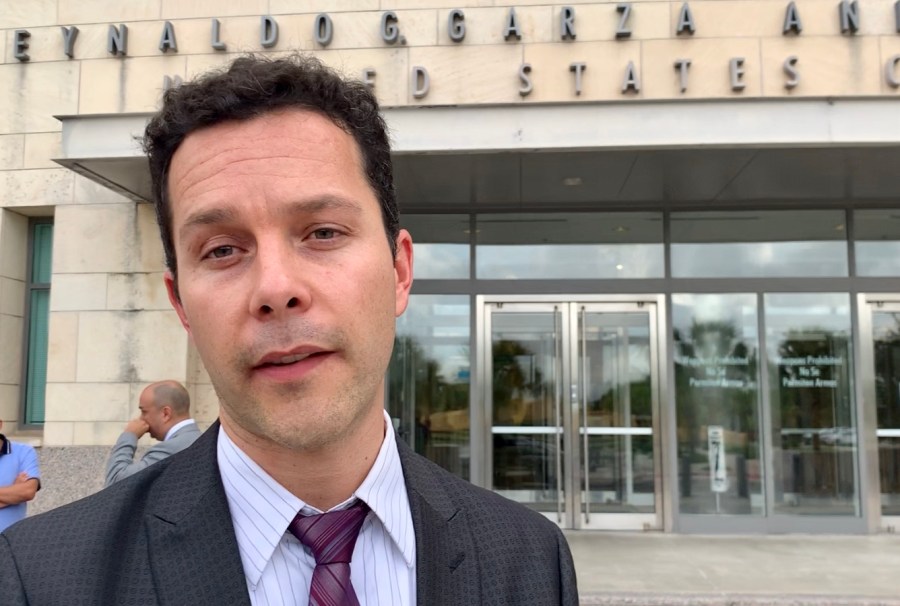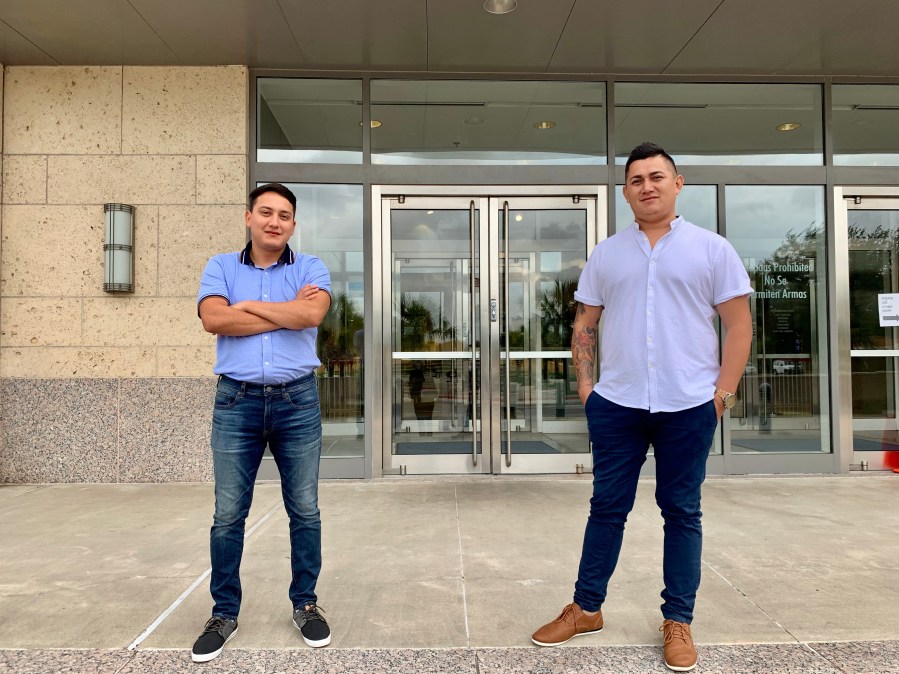Migrant ‘given a laxative’ in detention for heart condition, according to court testimony
BROWNSVILLE, Texas (Border Report) — There was stunning testimony in federal court on Thursday that sheds light on what migrants say conditions are like inside detention holding facilities run by U.S. Customs and Border Protection. The migrants, who are part of a class-action lawsuit against the federal government, claimed they were detained for weeks by federal officials and were not allowed to shower, brush their teeth, get medical care or speak with lawyers or their consulate representatives.
Seven witnesses testified on Thursday in the U.S. District Court Southern District of Texas in Brownsville before Judge Fernando Rodriguez Jr. They are among 16 plaintiffs who have filed a class-action lawsuit, in which they are seeking more humane standards be set for more adult migrants who are held by federal authorities for over 72 hours.
What makes this case unique is that Judge Rodriguez, a Trump-appointee, allowed open court testimony from the plaintiffs — which lasted for almost eight hours on Thursday — during a preliminary injunction request.
Read an earlier Border Report story on the filed class-action lawsuit

“This is a very rare opportunity to hear people testify on record in federal court on conditions inside holding facilities in an open hearing,” said Efren Olivares, a lawyer with the Texas Civil Rights Project, which is representing the plaintiffs.
Sharing medicine in detention
Cousins Jonathan Fernando Beltran Rizo and Kevin Eduardo Rizzo Ruano, both from Guatemala, testified on Thursday when they were held in a CBP facility in the Border Patrol’s Rio Grande Sector where they were denied medical attention.
Rizo testified that he developed a high fever and was visibly sick, but agents would not take him to see a doctor. Other men in his crowded holding cell began banging on the iron rails to demand agents remove Rizo for medical care. He was eventually taken to a local hospital where he was given an injection and returned to detention with oral antibiotics.
Days later, he said his 25-year-old cousin, Ruano, also began running a fever and appeared to have a respiratory infection. Rizo testified that agents refused to take Ruano to see a physician. Ruano said Rizo shared his medicine with him. When agents dispensed his oral medication to him, Rizo tucked it into the crook of his cheek and pretended to swallow it, then he would remove the pill and give it to his cousin, who ended up recovering from his illness.

Detainee ‘pulled out his tooth’
Hecter Rivera Rosa, 44, of El Salvador, another plaintiff, testified on Thursday that his toothache was so severe that he “pulled out his own tooth while in CBP custody.” Through a Spanish interpreter, Rosa said agents finally took him to a hospital days after complaining of the severe toothache.
Rosa was arrested on May 30 by agents at the Harlingen International Airport and was taken to the hospital on June 2.
He said he could not eat because of the pain in his mouth and he was not allowed to shower. In addition to his dental issues, he said he also had a foot infection and was not allowed to see a doctor.
Rosa was held for a total of 53 days in different detention facilities in McAllen and Port Isabel, Texas, and he testified that on “day 50 he was finally given a toothbrush but no toothpaste.”
Texas Civil Rights Lawyer Karla Vargas asked Rosa if he had requested to bathe and brush his teeth, and he said he had. He also asked to speak to a lawyer but was denied. Vargas asked if he was told that he had the right to speak to the consulate representative to El Salvador, and he said he did not know that.

On his 48th day of captivity, Rosa testified that he was allowed to make a phone call to his family at 5:30 a.m.
“I felt very bad and depressed. I wanted to see my family. I did not get a phone call,” Rosa testified in Spanish through a court-issued interpreter.
Rosa said the facilities were “freezing cold” and he also developed a fever. “It got to your bones,” he said.
Meals consisted of bologna sandwiches, and cellmates “slept standing up,” because of the crowded conditions, he added.
He testified that two groups of senators and important visitors came to the McAllen facility when he was there and that agents sprayed aerosols into the air to make it smell better before their arrival.
Vice President Mike Pence visited the McAllen Border Patrol station on July 15.
Migrant ‘given a laxative’ for heart condition
Juan Carlos Acensio y Acensio, 29, of Guatemala, said after crossing the Rio Grande on June 10 in Brownsville with his twin brother they were kidnapped and held for six days in an apartment in McAllen. Border Patrol agents apprehended them after they were released by their captors. They spent five days in a detention facility in Rio Grande City and eight days at the McAllen detention facility, which is also called “Ursula” by locals because it is on Ursula Avenue.
“We slept on the floor. They gave us aluminum blankets. The dust got to us. I developed a cough, a fever and a cold,” Acensio testified Thursday in Spanish through a court interpreter.
“The place smelled like pee and poop and the toilet overflowed and water seeped under our aluminum blanket one time and soaked us,” Acensio said. “The lights remained on all day long and we never knew if it was day or night.”
He said his cell in McAllen held about 70 men and none were allowed to shower.
Acensio, who was a police officer in Guatemala, said he fled his country seeking political asylum.
One night, he said his eyes rolled back in his head and he lost consciousness while in McAllen detention. He was taken to see a nurse and Acensio testified “the only thing she gave me was a laxative.”
A few days later he returned to the infirmary. Another nurse said he had a heart condition but refused to send him to the hospital because he testified that she said it was the responsibility of the first nurse to document and send him.
“The testimony showed the horrible conditions they endured,” Olivares told Border Report on Thursday outside the courthouse after a day-long hearing. “Horrendous conditions that we hear about in the media sometimes, and there’s photographs and videos but we rarely get to hear from the detainees themselves to express what it felt like to be humiliated in that way in those conditions.”
Court is set to resume Friday at 8:30 a.m. CST.
Contact Sandra Sanchez at SSanchez@BorderReport.com.

















